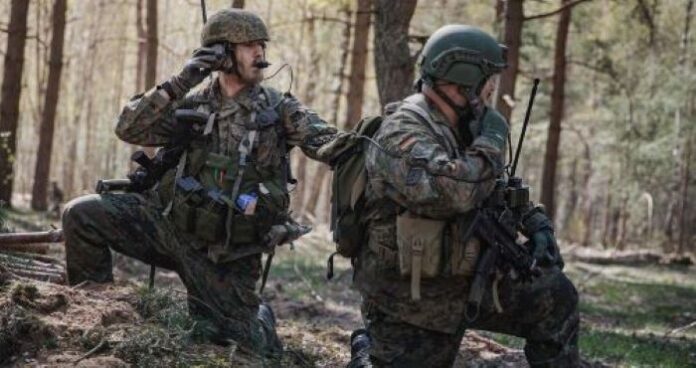Germany’s Defence Minister announced plans yesterday to reorganize the country’s military command as part of a drive to make NATO’s most populous European member “war-capable.” After Russia’s invasion of Ukraine in 2022, Chancellor Olaf Scholz undertook to increase spending by the Bundeswehr, the country’s military, which the German authorities acknowledged had suffered years of neglect.
Defence Minister Boris Pistorius initiated the promised overhaul in November, having previously cited the risk of a possible future attack by Moscow on a NATO country. His insistence that Germany’s military needed to become “war-capable” caused unease among some in a country known for its post-Second World War culture of military caution.
“I am convinced it is one of the few words that really describes correctly the imperative here,” the minister told reporters in Berlin. “I respect the fact that others struggle with the word, but I also note that most who do have no problem with the substance behind it.”
Pretorius aims to create a single “operational military command” to speed up decisions and eliminate duplication. The Bundeswehr currently has two command centres: one for planning and running deployments overseas; the other for the defence of the country itself.
The “cyber and information” department now responsible for preventing cyberattacks, protecting electronic infrastructure and analyzing sabotage threats such as disinformation is to be expanded and become a fourth arm of the military alongside the army, air force and navy.
Speaking on NATO’s 75th anniversary, Pistorius stressed that the Bundeswehr faces both a new and an old challenge — “that of defending the country and the alliance.”
In 2022, Chancellor Scholz committed to raising Germany’s defence spending to the NATO target level of 2% GDP, something it had previously failed to do. His government set up a 100 billion-euro special fund to modernize the German military. What happens after the fund runs out in 2027 remains unclear.
According to Defence Minister Pretorius, the 2% expenditure goal was reached this year and will be sustained in future years “so that we can do justice to our responsibility and our role in NATO.” While orders for new equipment reflect the progress being made, the parliamentary commissioner for the military declared just a month ago that the Bundeswehr “still has too little of everything.”

